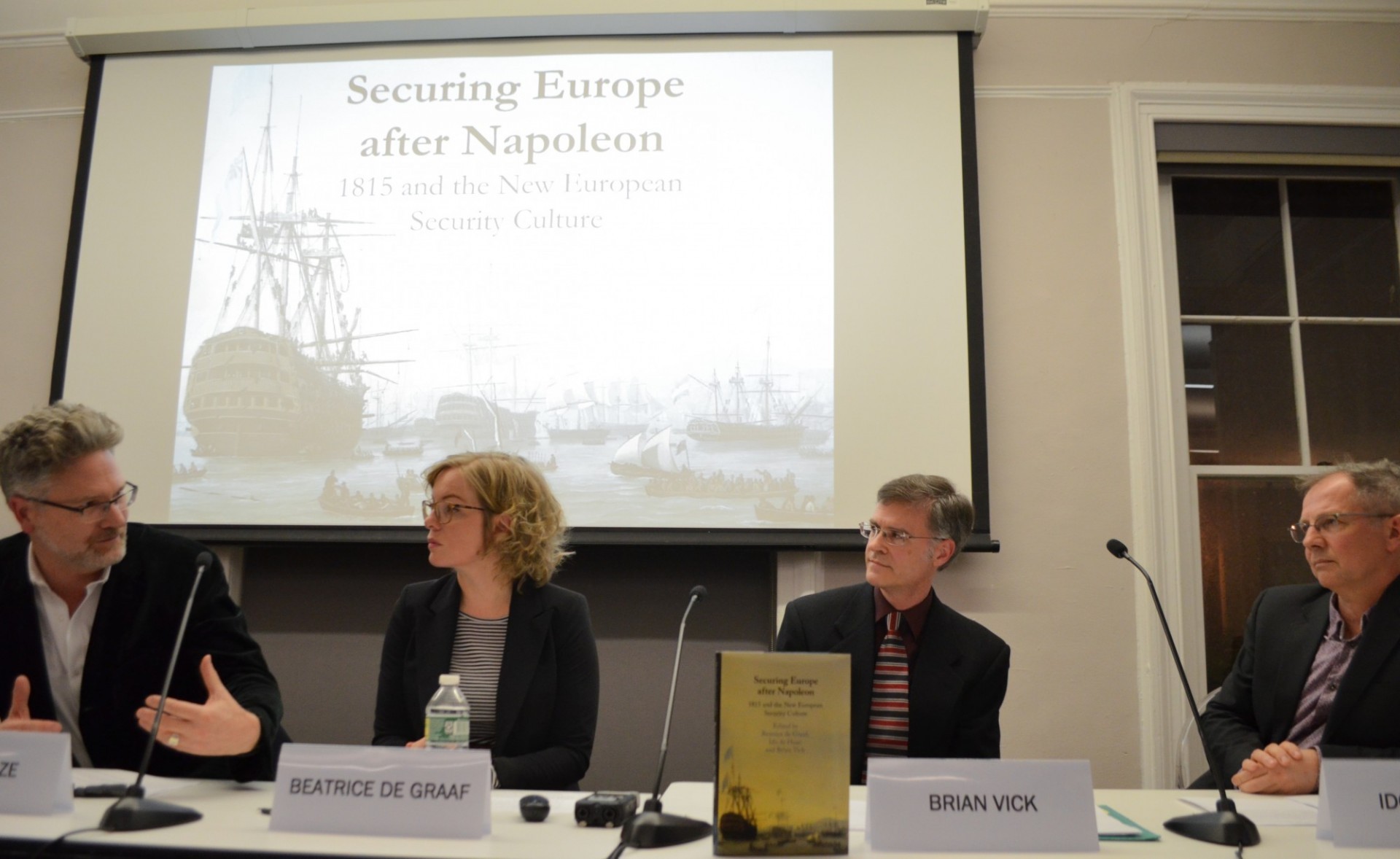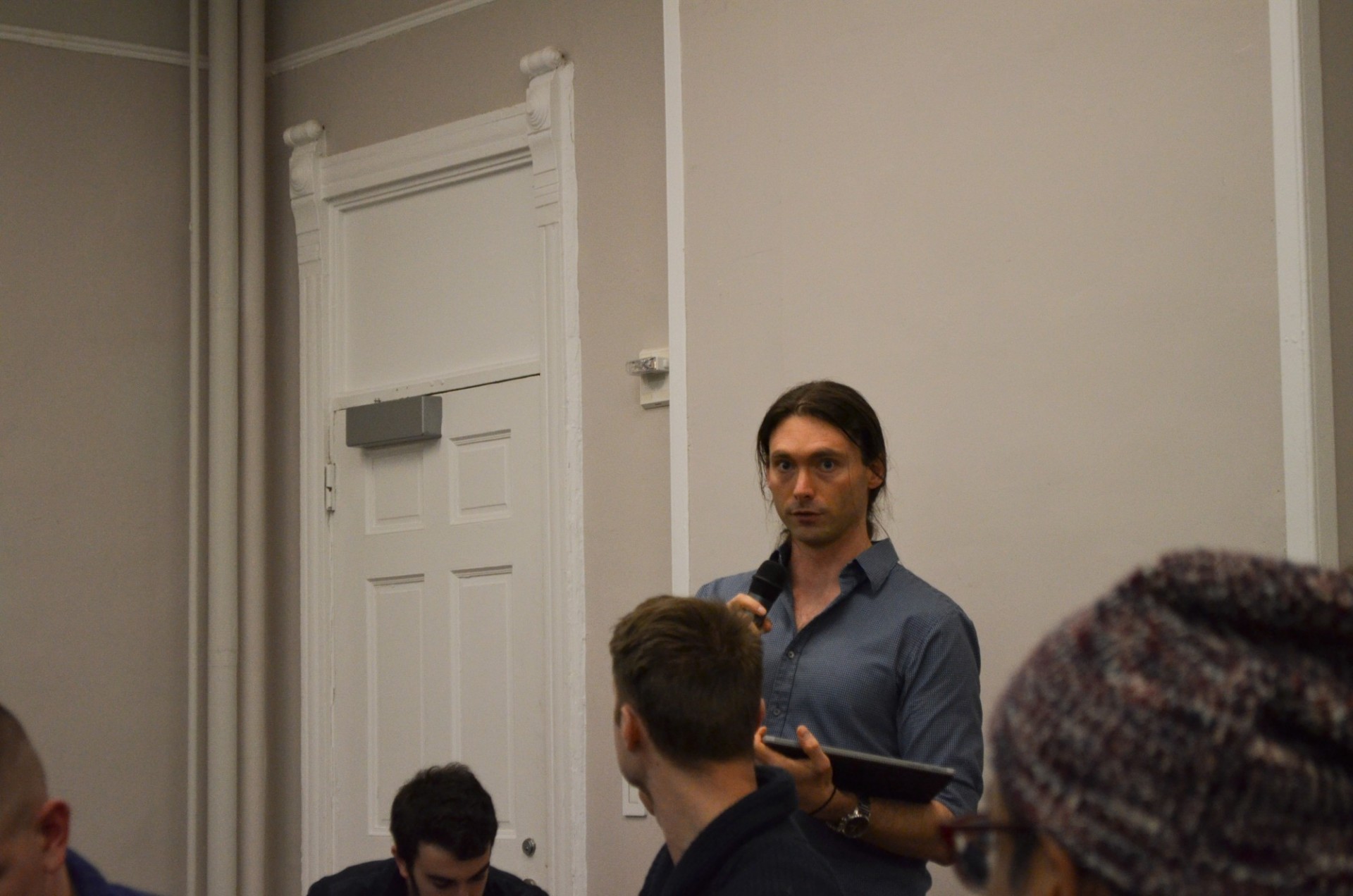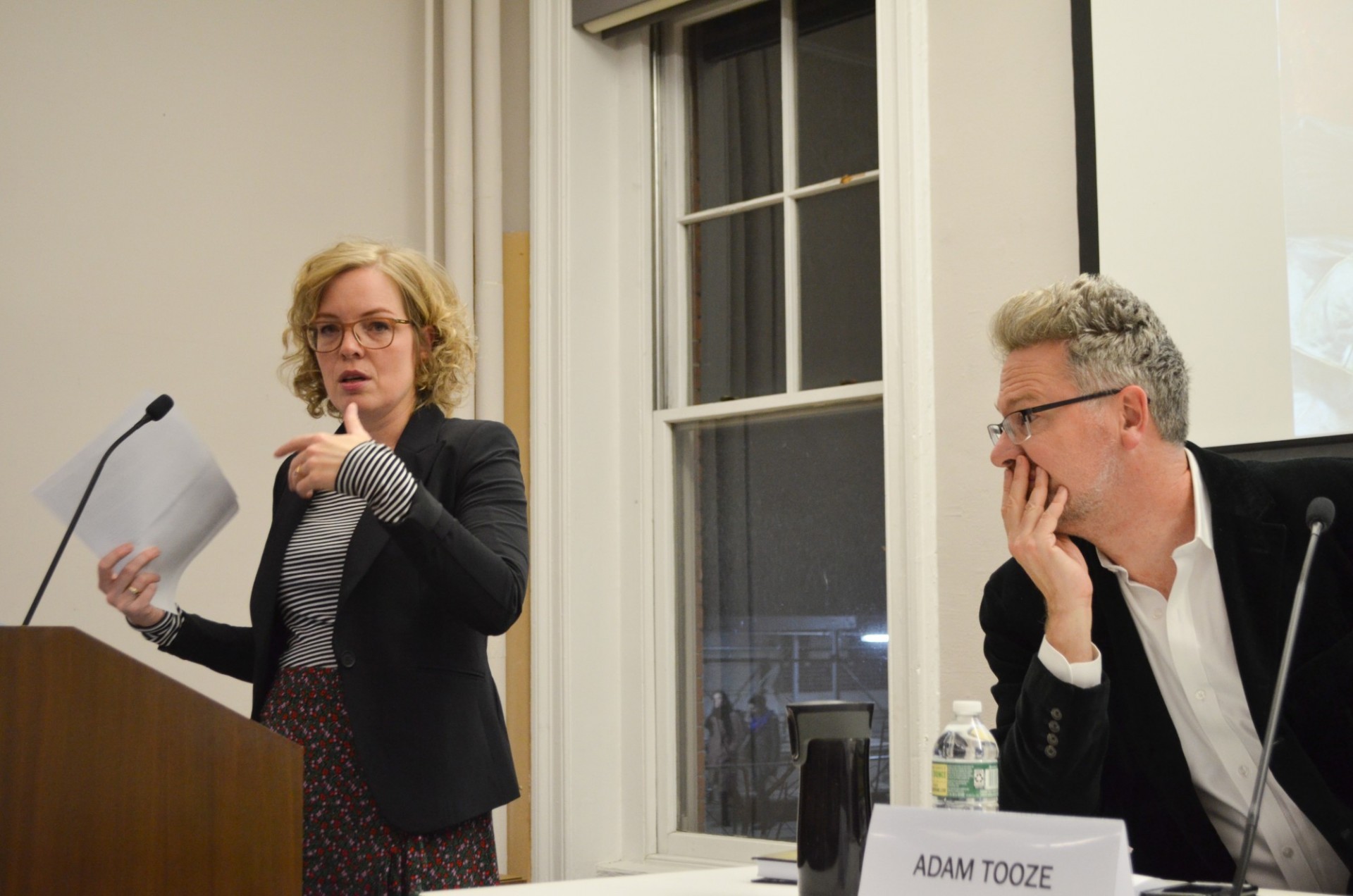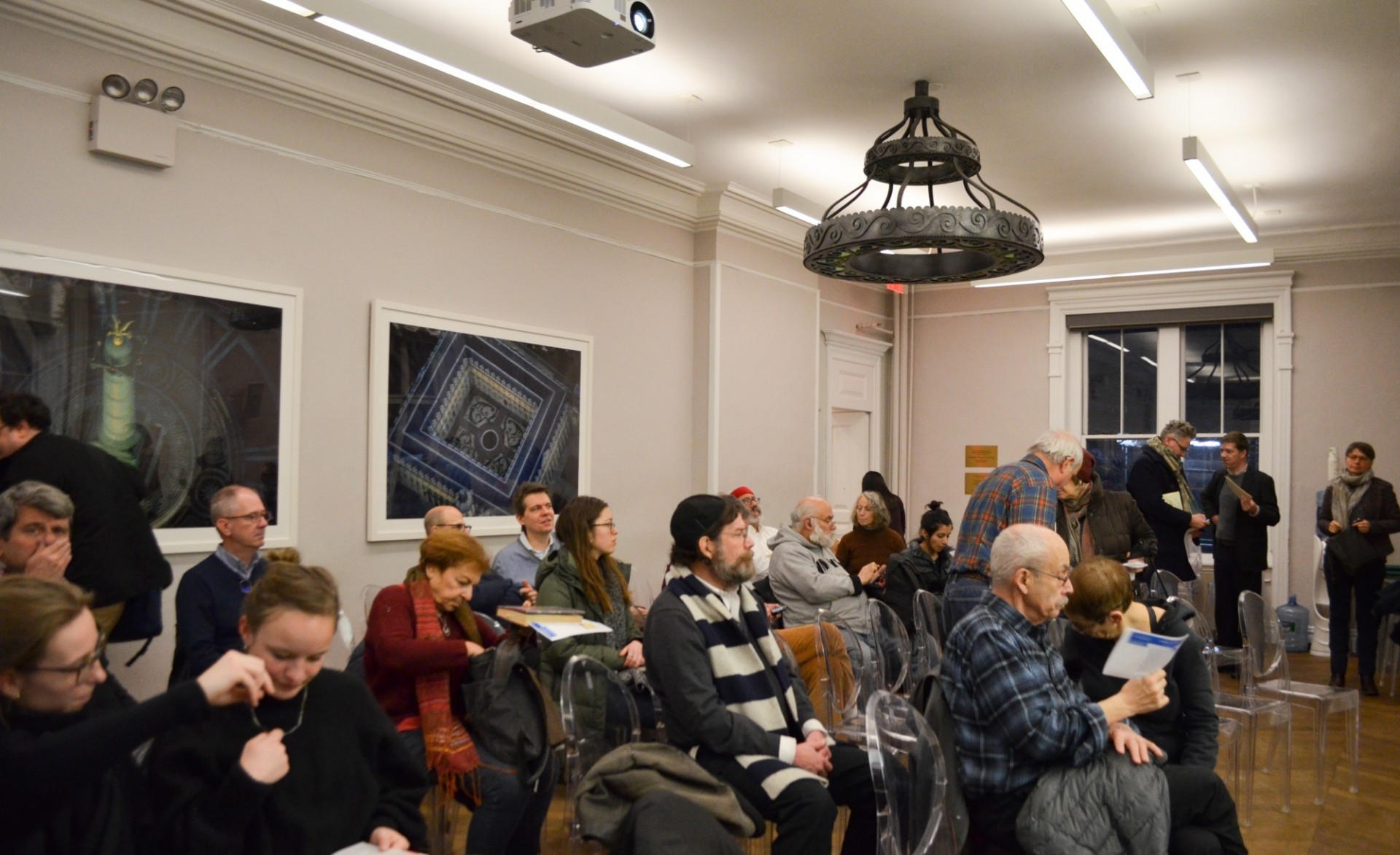Event Recap: "Securing Europe after Napoleon - 1815 and the New European Security Culture"

On February 27th, Ido de Haan (Queen Wilhelmina Visiting Professor of the History, Language and Literature of the Dutch Speaking People at Columbia University), Beatrice de Graaf (professor of History of International Relations & Global Governance at Utrecht University), and Brian Vick (Associate professor of history at Emory University) launched their new book, Securing Europe after Napoleon: 1815 and the New European Security Culture (Cambridge University Press, 2019). De Haan, de Graaf, and Vick, being editors as well as contributors for the book, were all able to speak individually about the major points to be found in the new text. Following these remarks was a panel discussion moderated by Adam Tooze (Kathryn and Shelby Cullom Davis Professor of History, Columbia University).
First to speak was Beatrice de Graaf, who discussed the “security culture,” which emerged in Europe after Napoleon. At the Congress of Vienna, European leaders had to start looking for alternative methods for keeping the peace amongst themselves in order to maintain stability. And it was the very nature of these tense political and social situations, de Graaf stated, that led to the development of what she called a new “security culture.” An important aspect of that culture was “summitry,” or the coming together of various nations of the world in order for world powers to get to know one another and address common threats and concerns.
After de Graaf’s summary of security culture in Europe after 1815, Ido de Haan spoke on the international police networks in Europe after the fall of Napoleon. On this topic, de Haan began by mentioning that the years after 1815 were an experimental period for development in European modes of governance; this was largely because European monarchs were very worried about the popular uprisings across the continent. To convey this point, de Haan quoted an 1820 letter from Baron Karl Vincent of Austria to Klemens von Metternich in which the Baron said that violent uprisings all over Europe were “a threat to the existence of every throne.”
In response to these threats, a transnational police system came about in the period, which was tasked with pursuing “suspicious or blacklisted people,” who were assumed to be “guilty by association,” by being connected to other suspicious, blacklisted individuals. This approach to transnational policing in the era, which according to de Haan, experienced significant development after 1815, was dependent upon a wide network of information sharing across the European continent and was made possible in part by such people as innkeepers. Expounding on this subject, de Haan said that the new methods for policing Europe created an exile culture, as revolutionary individuals who found themselves pursued by police within this system would often have to flee from one country to the next.
After de Haan’s talk, Brian Vick joined the conversation, illustrating the nature of the new historical ideas Securing Europe after Napoleon has to offer to academia. Vick strongly asserted that it is the hope of the editing team that this book will open doors to new fields of study, especially in terms of looking at historical transnational connections within the realms of international diplomacy and security. Additionally, Vick said that this book seeks to look at the perspectives of traditionally understudied groups of people, such as women, in order to gain a fuller perspective on the societal changes happening at the time.
Following this portion of the event was a Q&A with the audience, which addressed questions of nationalism in 1800s Europe and structures of the military and police forces at the time.
This event was sponsored by the Maison Française, the European Institute, the Department of History, and the Studies of the Dutch-Speaking World. A video of the full event will soon be available on the European Institute’s YouTube channel. To view more photos from the event, see our album on Flickr.


